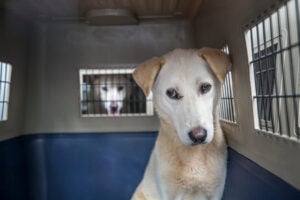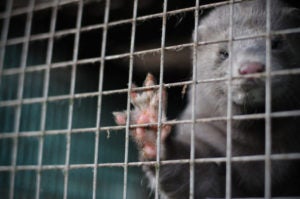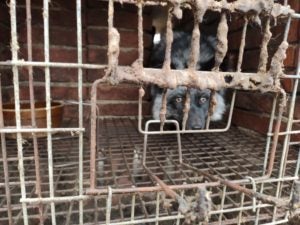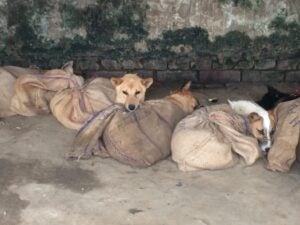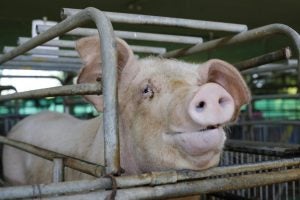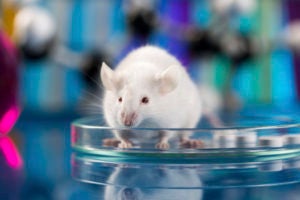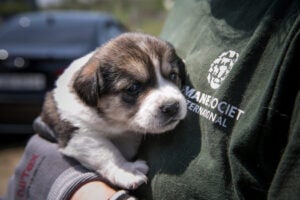
WASHINGTON (July 16, 2020)—More than 100 dogs saved from South Korea’s brutal dog meat trade are headed for loving homes in the United States. Humane Society International rescued the dogs as part of its campaign to end the dog meat trade and flew them to the U.S., where the Humane Society of the United States placed them with several Shelter and Rescue Partners in the mid-Atlantic.
Organizations taking in the rescued dogs include
- Angels of Assisi (Roanoke, Va.)
- Animal Care Sanctuary (East Smithfield, Pa.)
- Animal Haven (New York, N.Y.)
- Animal Welfare Association of NJ (Voorhees, N.J.)
- Homeward Trails Animal Rescue (D.C.-Md.-Va.)
- Humane Society of Calvert County (Sunderland, Md.)
- Montgomery County SPCA (Amsterdam, N.Y.)
- Tri-County Animal Shelter (Hughesville, Md.)
“Rescuing animals from suffering and neglect is as important as ever,” said Kitty Block, CEO of Humane Society International and president and CEO of the Humane Society of the United States. “Thanks to the hard work of our staff and partners — both in Korea and the U.S. — these dogs will now have the happy lives they deserve: with families who love them.”
Sixty of the dogs arriving in the United States were rescued from a single dog meat farm by HSI in May (the remaining dogs from that farm are scheduled to go to Canada). This was the 16th farm the organization has helped to close since 2015. The dogs stayed in a temporary shelter in South Korea until modification of travel restrictions made it possible for HSI to bring them to the United States.
While dog meat is eaten in several countries in Asia, South Korea is the only country that farms dogs for human consumption on a large scale. An estimated 2 million dogs a year are reared on thousands of dog meat farms across the country. The conditions on these farms are horrific – most dogs live their entire lives in barren wire cages without adequate shelter or veterinary care until they are brutally slaughtered, usually by electrocution or hanging.
HSI’s pioneering program works with Korean dog farmers to rescue their dogs and transition the farmers to more humane and profitable livelihoods. The farmers sign a 20-year contract, stipulating they will not breed dogs or any animals, and the cages are demolished to ensure that no animals will suffer on the property in future.
At each dog meat farm closure, a veterinarian vaccinates the dogs against the H3N2 (dog flu) virus, rabies, DHPP, corona virus, distemper and parvo. HSI then quarantines the dogs on the farm or at a temporary shelter with no dogs permitted in or out prior to transport overseas. The dogs are given another check-up before their flight to ensure they are healthy enough to fly.
So far, HSI has saved more than 2,000 dogs from Korean dog meat farms. The dogs are brought to the United States, Canada, and the United Kingdom for adoption. While pet ownership is on the rise in South Korea, adopting instead of buying a dog is still not a widespread practice there.
Download photos of the dogs’ journey from South Korea to the United States (more photos will be added Thursday afternoon). HSI’s senior specialist for disaster operations Kelly Donithan filmed a Facebook Live from the plane before it took off from Incheon International Airport in Seoul.
Download photos and video of the dogs on Farm 16 and their rescue.
END
Media contact: Nancy Hwa, Humane Society International, nhwa@hsi.org, 202-596-0808 (cell)

